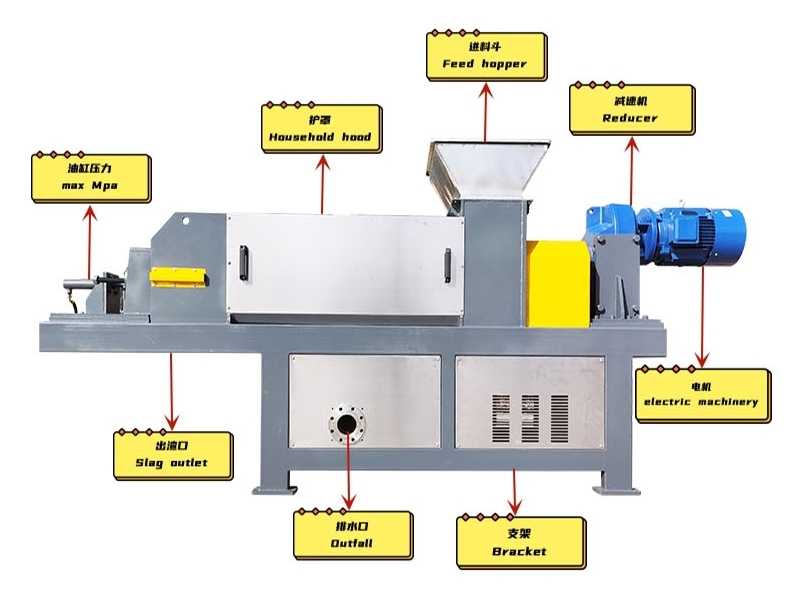
In recent years, there has been a growing emphasis on sustainable practices in various industries, including agriculture and food processing. One area of focus is the efficient management of fruit and vegetable residues, which often pose challenges in terms of disposal and environmental impact. In response to this, the development of specialized machinery, such as the Fruit and Vegetable Residue Dehydration Machine, has gained prominence as an innovative solution.
Features of the Residue Dehydration Machine:
The Fruit and Vegetable Residue Dehydration Machine is designed to address the issue of excess moisture content in residues left after the primary processing of fruits and vegetables. This innovative equipment offers several key features:
Efficient Dehydration Technology:
The machine employs advanced dehydration technology to effectively remove excess water from fruit and vegetable residues. This not only reduces the overall volume of waste but also enhances the feasibility of subsequent disposal or repurposing.
Energy-Efficient Operation:
With a focus on sustainability, these machines are designed to operate with high energy efficiency. By optimizing the dehydration process, the equipment minimizes energy consumption, making it an eco-friendly choice for food processing facilities.
Versatility in Application:
The Residue Dehydration Machine is versatile and can handle a variety of fruit and vegetable residues. From pomace generated during juice extraction to peels and pulps, the machine is adaptable to different types of organic waste.
Reduced Environmental Impact:
By significantly reducing the moisture content in residues, the machine contributes to the mitigation of environmental issues associated with traditional waste disposal methods. This includes a decrease in the release of greenhouse gases and leachates into the environment.
Output as Resource:
The dehydrated residues obtained from the machine can be repurposed for various applications. For instance, the dried material can be used as animal feed, organic fertilizers, or even as a potential source for bioenergy production.
Benefits and Implications:
Implementing the Fruit and Vegetable Residue Dehydration Machine in food processing operations yields several benefits:
Cost Savings:
Reduced waste disposal costs and the potential to generate value-added products contribute to overall cost savings for food processing facilities.
Compliance with Environmental Regulations:
The adoption of sustainable practices, such as residue dehydration, aligns with increasingly stringent environmental regulations, ensuring compliance and minimizing the risk of penalties.
Positive Corporate Image:
Companies utilizing environmentally friendly technologies enhance their corporate image and appeal to consumers who prioritize sustainability.
Conclusion:
The Fruit and Vegetable Residue Dehydration Machine represents a pivotal advancement in sustainable food processing practices. By efficiently managing organic residues, this technology not only addresses environmental concerns but also provides economic benefits to the food processing industry. As the demand for sustainable solutions continues to rise, the integration of such innovative machinery is poised to become a standard practice in the quest for a greener and more responsible future.




If your company wants to establish a business relationship with us, please briefly describe the cooperation intention and send an email to:chuantaiscrewpress@gmail.com























































































![[list:title]](/static/upload/image/20240528/1716877114510915.jpg)